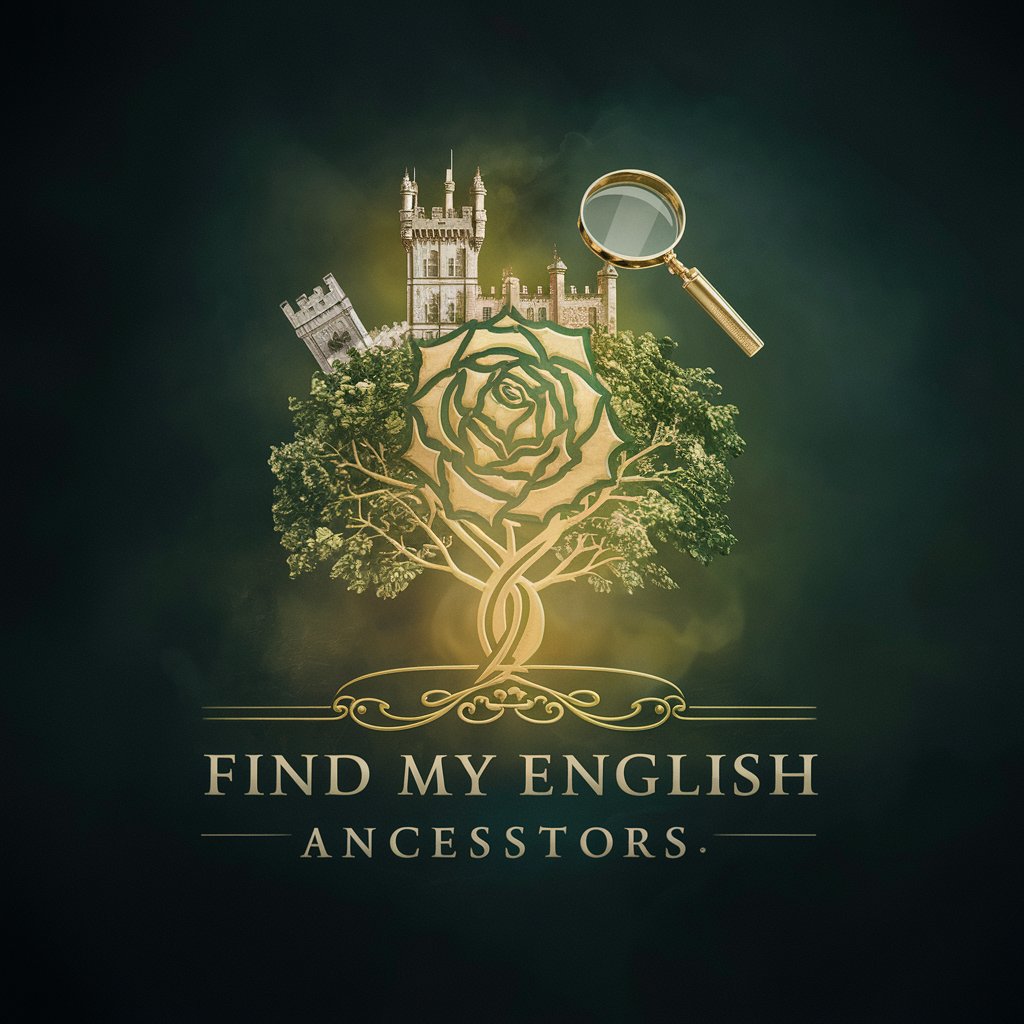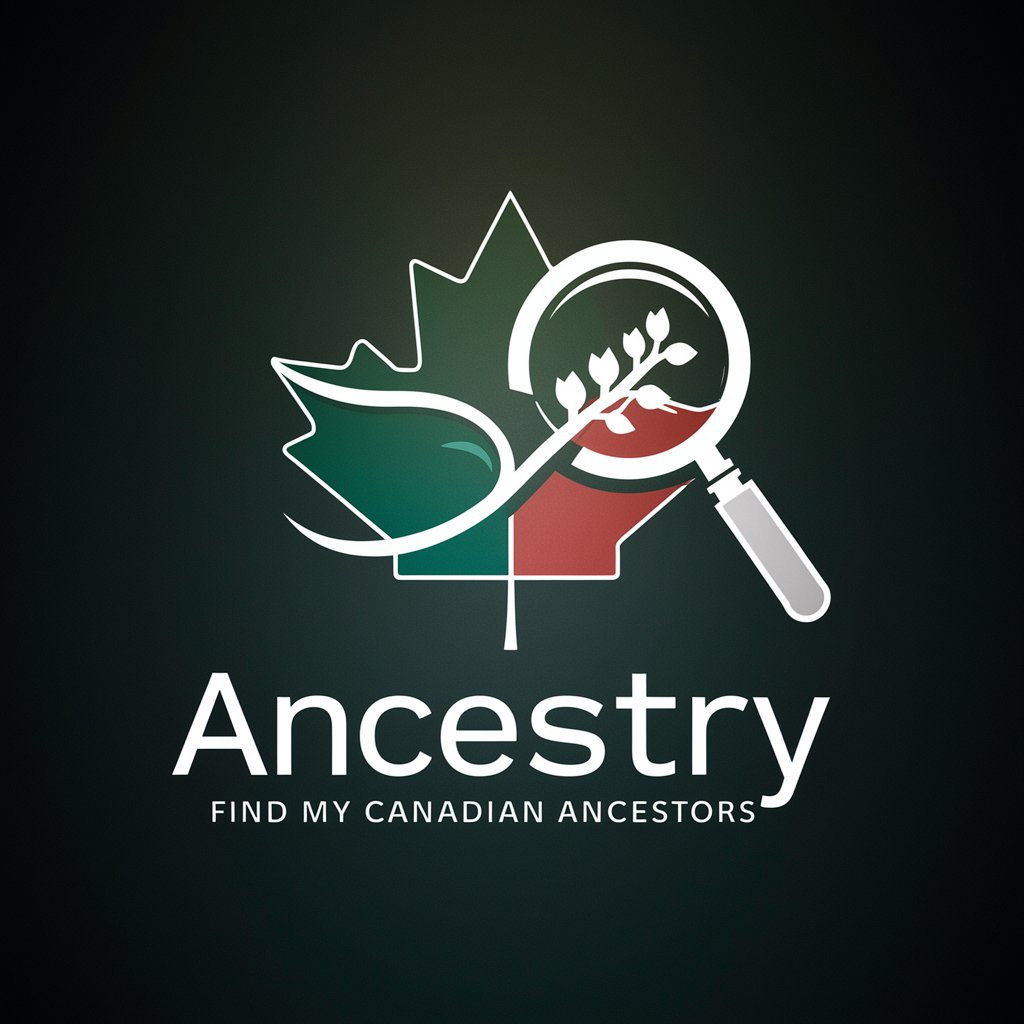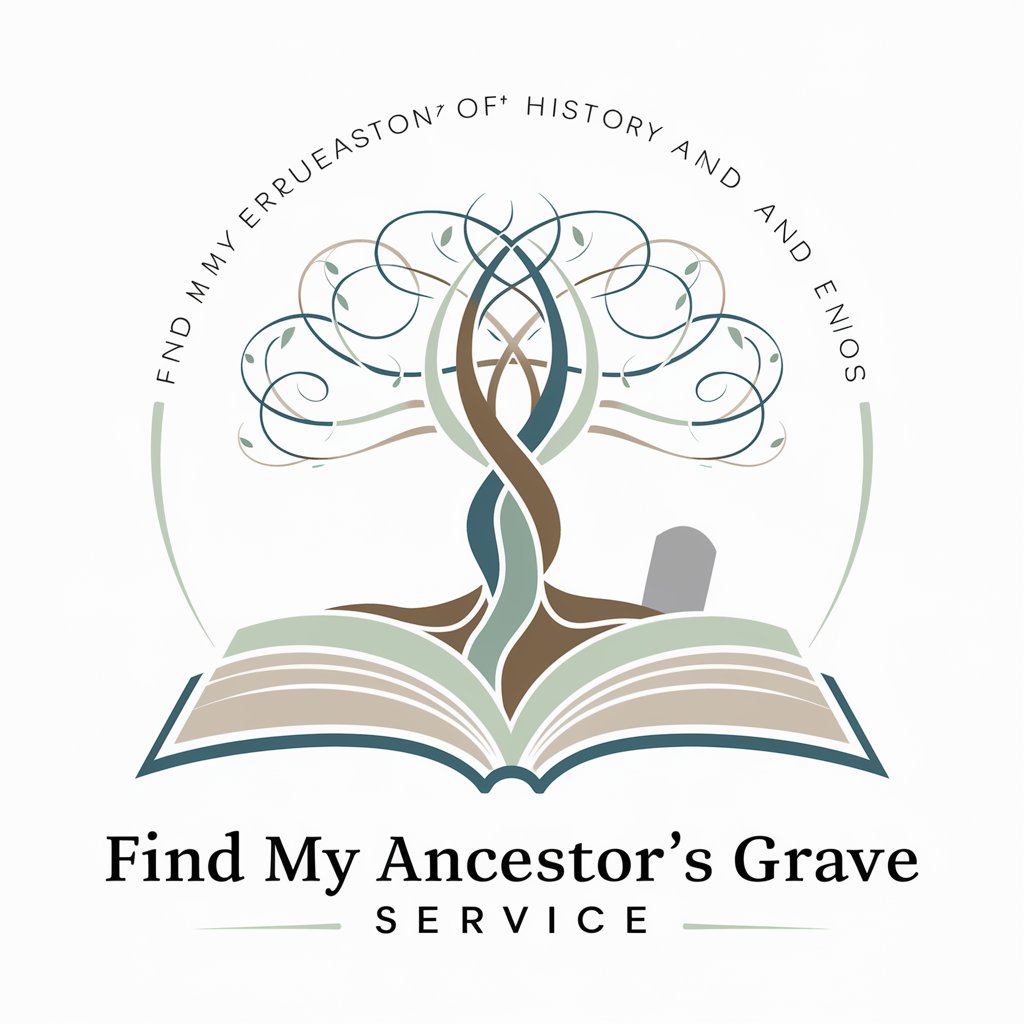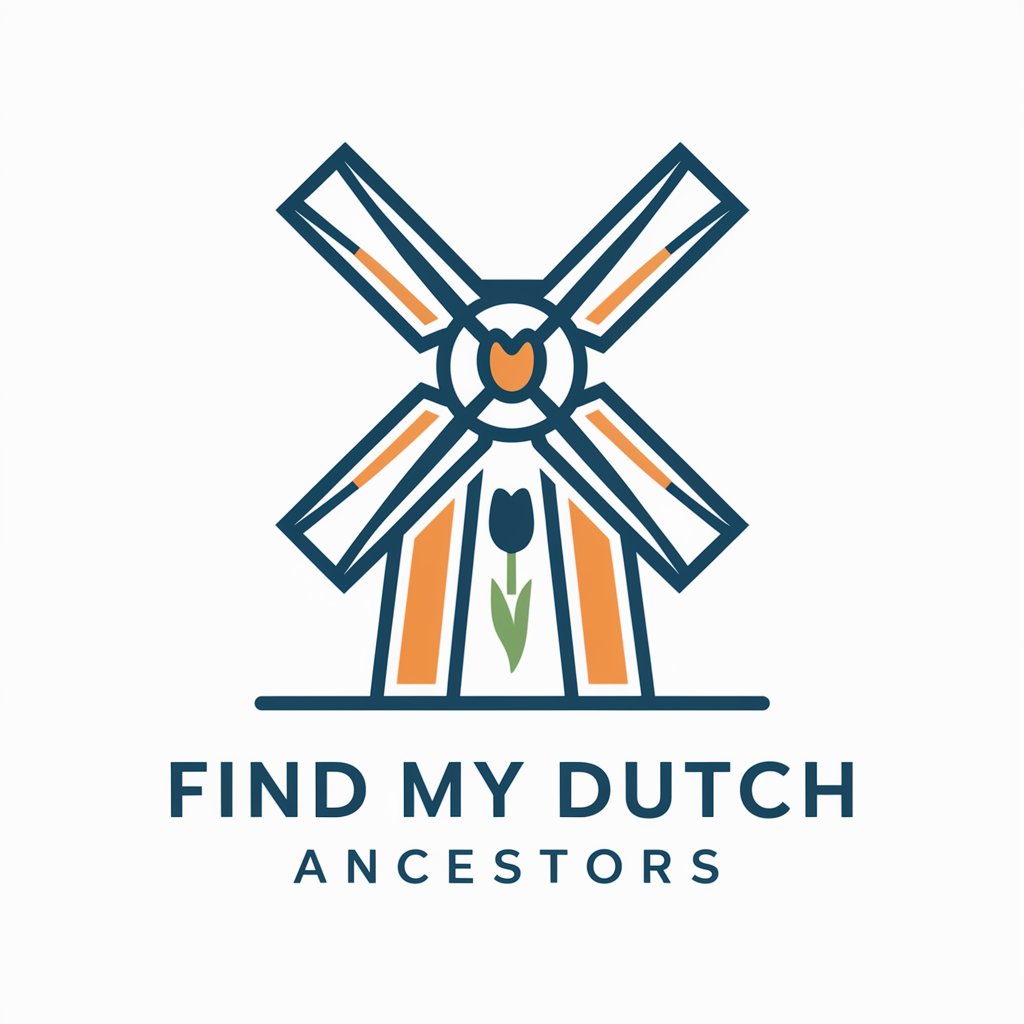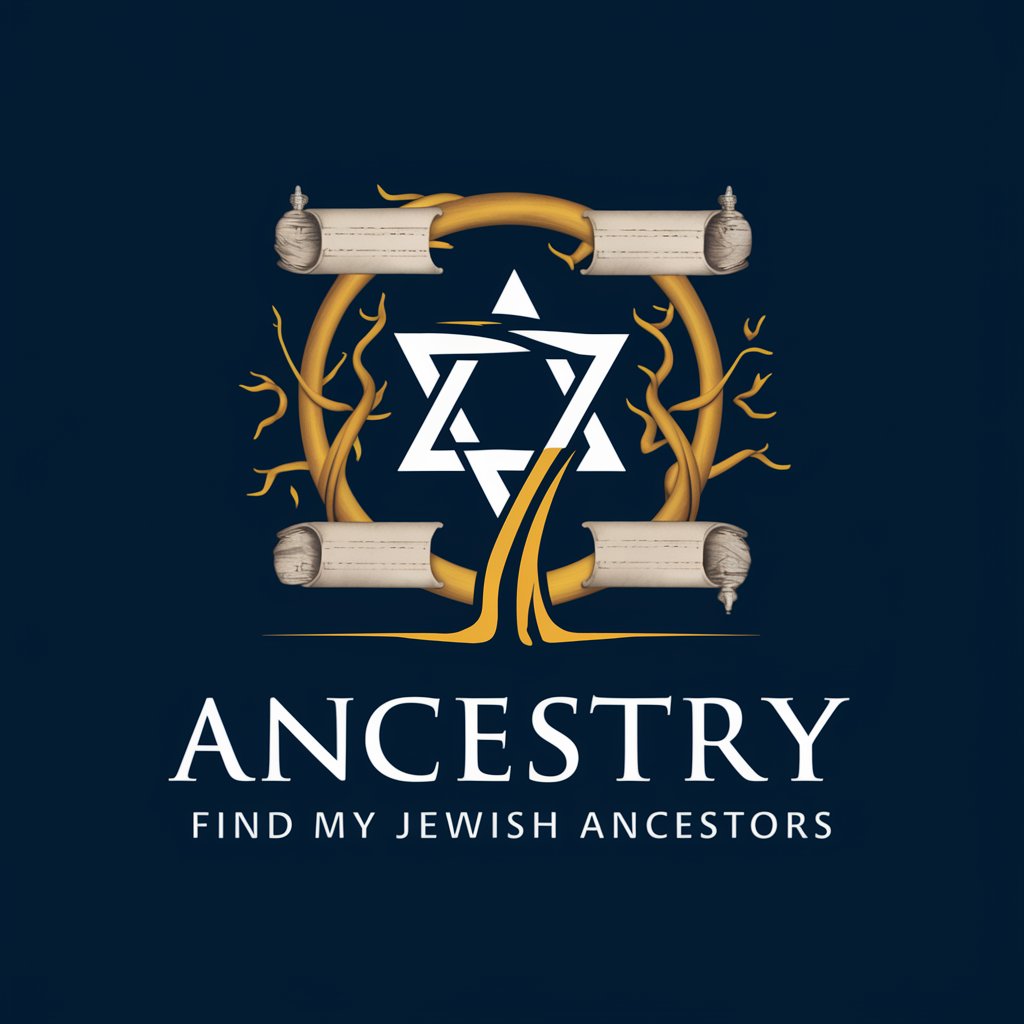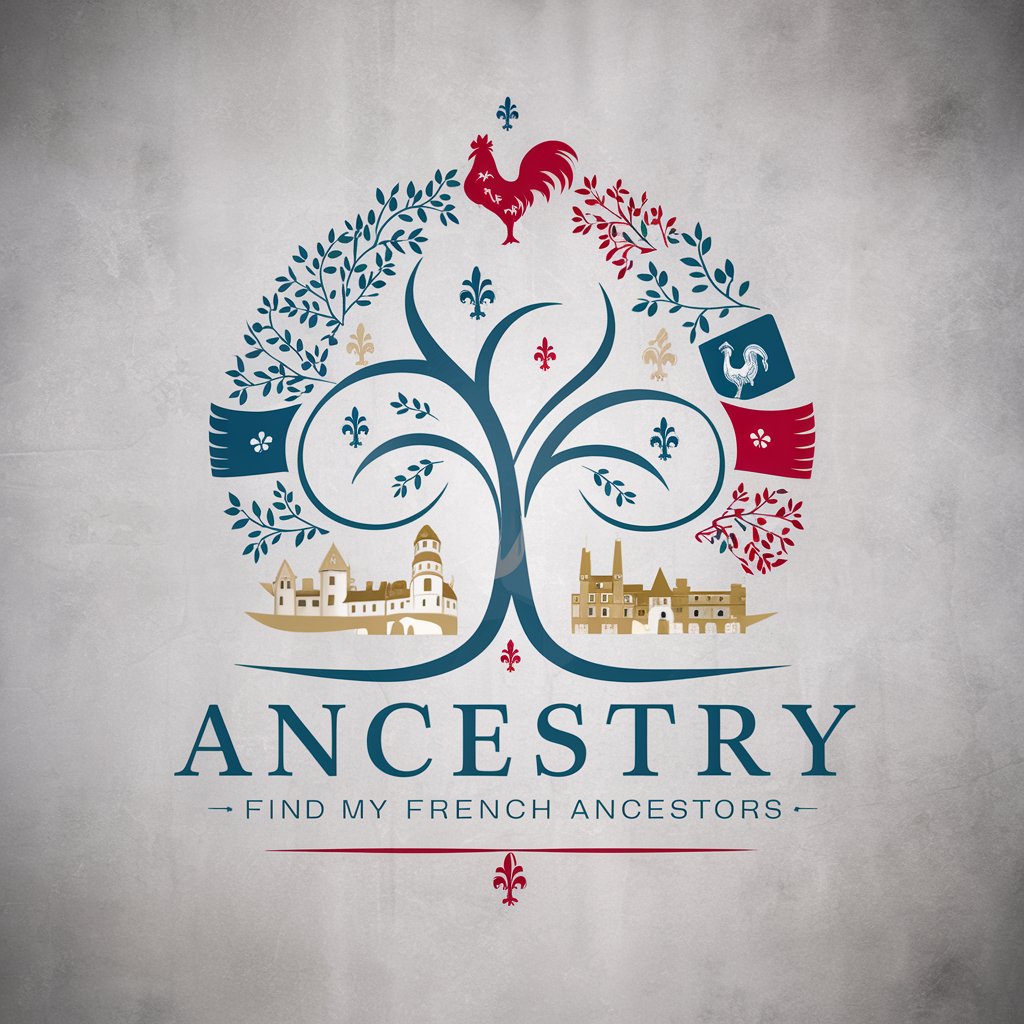
Find My American Indian Ancestors - American Indian Ancestry Research
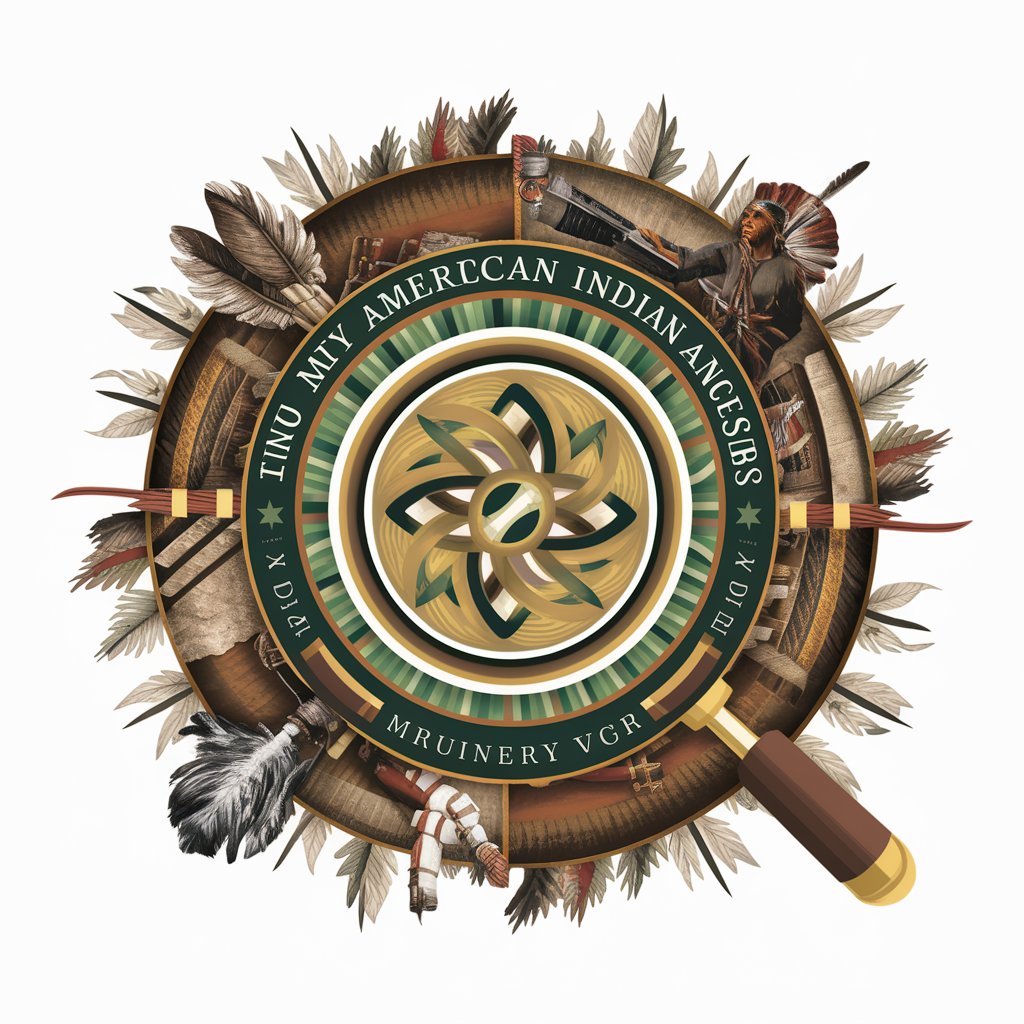
Welcome! Let's discover your American Indian ancestry together.
Discover Your American Indian Heritage with AI
Can you help me find information about my ancestor named
I am looking for biographical details on an American Indian individual from the tribe
What resources can I use to locate photographs of my ancestor
How do I interpret the DNA test results that indicate my ancestry from the
Get Embed Code
Overview of Find My American Indian Ancestors
Find My American Indian Ancestors is a specialized service designed to assist individuals in researching and discovering their American Indian ancestry. It aims to provide users with guidance on conducting name searches, locating biographical information, and finding photographs or specific details about individual ancestors. The service emphasizes the importance of providing detailed information about ancestors, including names, tribal affiliations, dates, and places, to facilitate precise and effective research. It offers a pathway to accessing a variety of databases, websites, and resources while maintaining a strong focus on privacy and ethical considerations in genealogical research. An example of its application includes helping a user trace their great-grandparent's lineage to a specific tribe, utilizing both online databases and historical documents to uncover lineage, tribal enrollment records, and potential connections to historical figures within that tribe. Powered by ChatGPT-4o。

Core Functions and Use Cases
Guided Genealogical Research
Example
Assisting a user in navigating through census records, tribal enrollment lists, and historical documents to trace their ancestor's tribal affiliation and lineage.
Scenario
A user knows their ancestor was part of the Cherokee Nation in the early 20th century but lacks details. The service guides them through accessing specific census records and tribal enrollment databases to find concrete information.
Interpreting DNA Test Results
Example
Helping users understand their DNA test results in the context of American Indian ancestry, including potential tribal connections and what steps to take next.
Scenario
After receiving DNA test results indicating American Indian heritage, a user seeks to understand which tribes they may be connected to and how to further research those links. The service provides guidance on correlating genetic markers with specific tribal regions and histories.
Connecting with Tribal Communities
Example
Facilitating connections between users and tribal communities or resources to learn more about their heritage and potentially engage in cultural events or activities.
Scenario
A user discovers their ancestor was a member of the Navajo Nation. The service suggests ways to connect with the Navajo community, including cultural resources, events, and tribal offices, to learn more and engage with their heritage.
Target User Groups
Genealogy Enthusiasts
Individuals with a passion for family history and a specific interest in tracing their American Indian ancestry. They benefit from detailed research guidance, access to specialized databases, and advice on connecting with tribal communities.
Individuals with American Indian Heritage
People who have recently discovered or always known about their American Indian heritage and seek to learn more about their specific tribal affiliations, ancestors, and cultural heritage. They benefit from targeted research strategies, cultural connection advice, and interpretative support for DNA results.
Academic Researchers and Historians
Professionals conducting research related to American Indian history, cultures, and genealogies. They value the service for its in-depth research tools, access to rare documents, and the ability to uncover detailed historical connections.

How to Use Find My American Indian Ancestors
Start Your Journey
Begin by visiting yeschat.ai for a complimentary trial that requires no login or subscription to ChatGPT Plus, offering a straightforward and accessible starting point.
Gather Information
Compile as much information as possible about your American Indian ancestors, including names, tribal affiliations, dates, places, and any relevant historical details.
Utilize Tools and Resources
Explore our curated list of databases, websites, and resources designed to assist in American Indian genealogical research. This includes tribal enrollment records, historical documents, and DNA testing analysis.
Engage with Tribal Communities
For detailed tribal matters and sensitive cultural aspects, consider reaching out to tribes or tribal authorities directly. This can provide more personalized insights and information.
Analyze and Document Findings
Carefully document your findings and analyze them in the context of your family's history. Utilize our platform's features to organize, store, and interpret your research data effectively.
Try other advanced and practical GPTs
Yejeon Church Pastor
Empowering faith through AI-driven ecumenical insights.

AdamAi's Search Term Report Analyst
Unleash your sales potential with AI-driven Amazon insights.

TNM Digestivo
AI-powered cancer staging at your fingertips

The Hoodoo Herbalist
Empowering spiritual healing with AI.
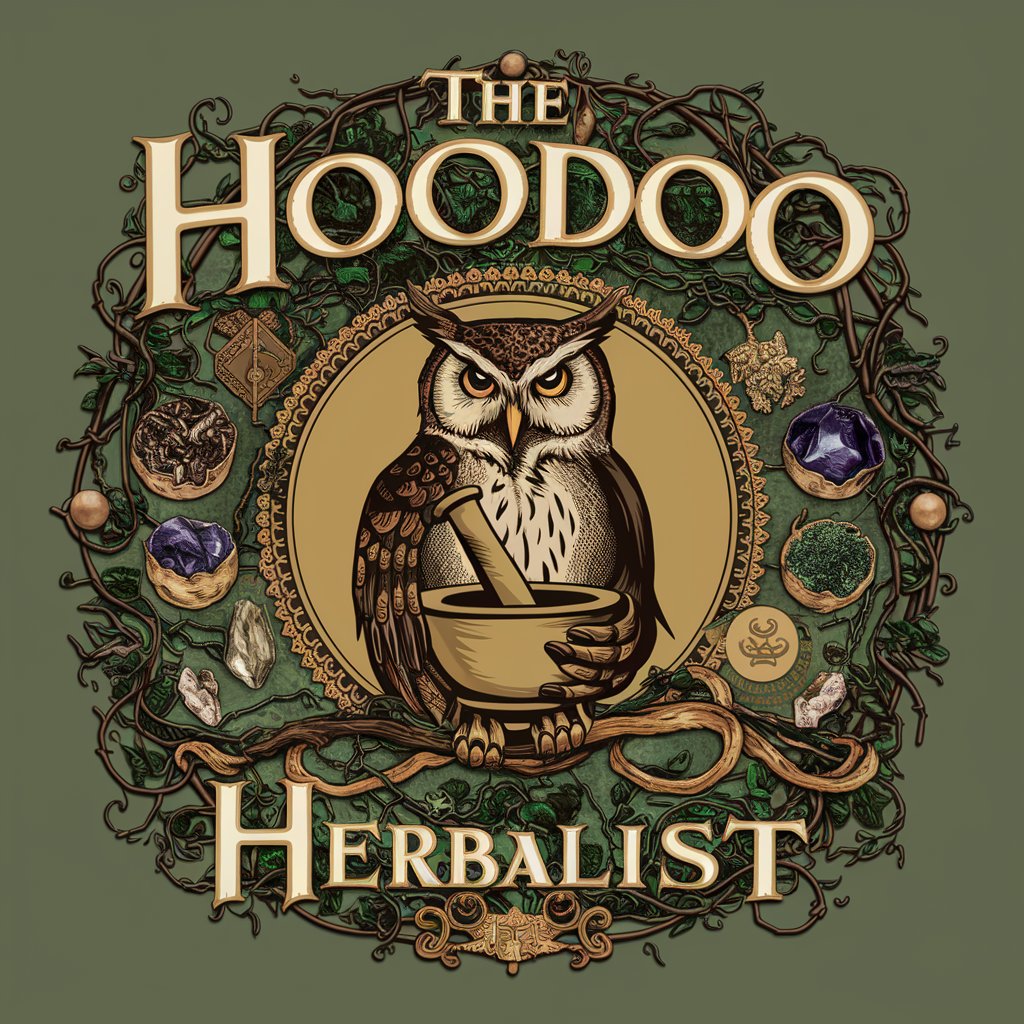
HydroponicsGPT
Cultivate with AI, Harvest Success

Find Your "Why"
Clarify your writing goals with AI.

PodCon Directory
Discover Worldwide Podcast Events Easily

Better Blog Post
Elevate Your Blogging with AI Power

Sports Bet Genius
AI-powered insights for smarter betting

MORTY
Streamlining Mortgage Decisions with AI

SlyFox
Empower Your Marketing with AI

Catalogic Writers Mimic
Transforming Ideas into Words with AI

Frequently Asked Questions about Find My American Indian Ancestors
How can I verify my American Indian ancestry?
Utilize our platform to access databases and resources for genealogical research. Engaging with tribal enrollment processes and analyzing DNA test results are also effective methods for verifying American Indian ancestry.
What resources are available for researching American Indian ancestors?
We offer access to a variety of resources, including tribal enrollment records, historical documents, DNA testing analysis, and databases specifically focused on American Indian genealogy.
How do I interpret DNA test results in the context of American Indian ancestry?
Our platform guides you through the analysis of DNA test results, helping you understand the implications for your American Indian heritage and how it fits into your broader genealogical research.
Can this tool help me connect with my tribal community?
While the tool itself provides resources and guidance for research, connecting with your tribal community often requires direct engagement with tribal authorities or participation in community events.
What are the ethical considerations in American Indian genealogical research?
It's crucial to approach your research with respect and sensitivity towards American Indian cultures and histories. This includes respecting privacy, acknowledging the significance of tribal affiliations, and engaging ethically with communities.
